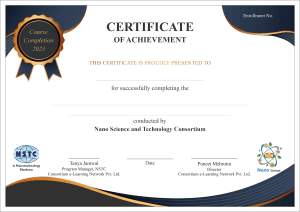
Advanced Medical Statistics: Data Analysis for Evidence-based Decision Making
Advanced Medical Statistics, Evidence-based Decision Making, Biostatistics, Epidemiology, Hypothesis Testing, Regression Analysis, Meta-analysis
About Program:
–
Aim: This course aims to provide participants with advanced statistical knowledge and skills required for analyzing and interpreting data in clinical research. Participants will learn statistical methods used in clinical trials, observational studies, and epidemiological research, enabling them to make informed decisions and contribute effectively to evidence-based clinical practice.
Program Objectives:
- Develop a deep understanding of advanced statistical concepts and techniques commonly used in clinical research.
- Learn statistical methods for analyzing categorical and continuous data, including regression analysis, survival analysis, and longitudinal data analysis.
- Gain proficiency in using statistical software to perform complex analyses and generate meaningful results.
- Understand the principles of data validation, quality control, and data management in clinical research.
- Apply advanced statistical methods in interpreting research findings, assessing treatment effects, and communicating statistical results effectively to various stakeholders
What you will learn?
Week 1: Introduction to Medical Statistics and Research Design
- Overview of medical statistics and its role in clinical research
- Understanding different types of research designs and their implications for statistical analysis
Week 2: Descriptive Statistics and Data Presentation
- Calculation and interpretation of descriptive statistics (measures of central tendency, variability)
- Effective data presentation techniques for clinical research
Week 3: Probability and Probability Distributions
- Understanding probability theory and its applications in clinical research
- Study of common probability distributions (normal, binomial, Poisson)
Week 4: Statistical Inference and Hypothesis Testing
- Principles of statistical inference and hypothesis testing
- Performing t-tests, chi-square tests, and other parametric and non-parametric tests
Week 5: Confidence Intervals and Sample Size Determination
- Construction and interpretation of confidence intervals
- Sample size determination for clinical research studies
Week 6: Analysis of Variance (ANOVA)
- Introduction to ANOVA and its applications in clinical research
- Performing one-way and two-way ANOVA tests
Week 7: Linear Regression and Correlation Analysis
- Understanding the concepts of linear regression and correlation
- Analyzing the relationship between variables and interpreting regression coefficients
Week 8: Survival Analysis and Time-to-Event Data
- Introduction to survival analysis and Kaplan-Meier estimation
- Analyzing time-to-event data and understanding survival curves
Week 9: Meta-Analysis and Systematic Reviews
- Principles and methods of meta-analysis and systematic reviews
- Conducting a comprehensive literature review and synthesizing evidence
Week 10: Longitudinal Data Analysis
- Analysis of longitudinal data and repeated measures
- Mixed-effects models and other approaches for longitudinal analysis
Week 11: Advanced Statistical Techniques in Clinical Research
- Introduction to advanced statistical techniques (logistic regression, propensity score matching, hierarchical models)
- Application of advanced methods in clinical research scenarios
Week 12: Capstone Project and Course Review
- Completion of a capstone project demonstrating the application of statistical techniques in clinical research
- Review of key concepts, discussions, and wrap-up of the course
Intended For :
Career Supporting Skills
Program Outcomes
- Proficiency in advanced statistical methods used in clinical research.
- Ability to perform complex statistical analyses and interpret research findings.
- Skills in using statistical software for data analysis and visualization.
- Understanding of data validation, quality control, and management principles.
- Competence in contributing to evidence-based decision making in clinical practice.

